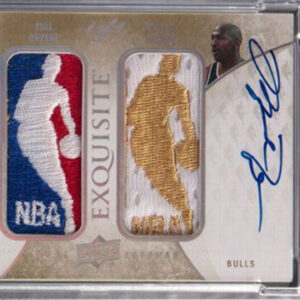In a drama fit for film noir, complete with rare artifacts, shadowy characters, and a heist that’s made waves in the sports card collecting world, Best Western finds itself in the middle of a legal battle that could redefine how hotels manage valuable deliveries. This sticky situation arose after a package containing vintage baseball cards vanished under mysterious circumstances at the chain’s location in Strongsville, Ohio. The value? A crisp $2 million. The perpetrators? An inside job orchestrated by hotel staff.
The main characters in this caper are the venerable Memory Lane Inc., a California auction titan, and Best Western, an establishment more accustomed to dealing with misplaced luggage than million-dollar mysteries. Upon discovering the heist, Memory Lane quickly turned to the judiciary to reclaim damages. The timing couldn’t have been worse for the auction house, as trust and a spotless reputation are as crucial as the cards themselves in this niche market.
Not your average swindler’s list, this one boasts 54 rare pieces, including among their ranks the legendary Hall of Famers. At the heart of the missing loot were two standout stars: a 1909 Ramly Walter Johnson and a 1941 Ted Williams, collectively appraised close to a staggering $90,000. It’s alleged that once FedEx delivered these timeless treasures to the Best Western Plus, things took a turn for the nefarious. Upon arrival, a Memory Lane employee was met not with glee and gratitude but an empty space.
The ensuing investigation unveiled an alarming story: hotel employee Jacob Paxton, showing the cunning of a card shark, intercepted the precious cargo and handed it off to his accomplice, Jason Bowling. Thanks to diligent detective work, 52 of the cards have found their way back home. Yet, the Johnson and Williams cards remain elusive, like ghosts of Baseball Past whispering from the creases and corners of time.
Justice has partially prevailed, with Paxton donning prison garb for a four-to-six-year stint and Bowling receiving community supervision. Yet the sting lingers for Memory Lane. The pain isn’t just fiscal; it seeps into the confidence clients have in their name, which, despite the centennial appeal of baseball cards, remains fragile in the face of betrayal.
Come summer of 2025, Memory Lane wasn’t about to let this profound breach go unchallenged. Their civil lawsuit against Best Western International and the local site managers aims to spotlight crucial failings in hiring practices and oversight, highlighting how poor management could lead to such a scandalous breach. This lawsuit suggests that the risk extends beyond financial loss, proposing that collectible items should receive the same diligent care afforded to luxury goods.
With its significant presence spanning continents and boasting billions in annual profits, Best Western is far more than just a hotel chain. It now finds itself facing scrutiny that could redefine how all hotels and delivery services secure high-value shipments. This case is poised to provoke soul-searching conversations within boardrooms worldwide, challenging industry norms and, perhaps, engendering new safety protocols for handling valuable memorabilia.
Theft, though, plays no favorites and knows no single stage. The National Sports Collectors Convention has gone through its own shifty shuffle, with notorious thefts marking its recent history. Despite enhanced security efforts, brazen filchers made off with iconic cardboard celebrities such as a 1951 Bowman Mickey Mantle rookie and a 1986 Fleer Michael Jordan rookie from the 2025 convention.
As the market for trading cards bursts through ceilings thought impervious just a decade ago, so too escalates the risk element. Connoisseurs and entrepreneurs alike are left considering a variety of fortifications: lockboxes worthy of Fort Knox, an omnipresent eye in the sky courtesy of cameras, and thickening the webs of insurance policies to encompass bizarre headlines.
If there is a silver lining to be inked from the November skies amid this drama, it is that this case could serve as a precedent for future industry practices. The anvil of justice may, in fact, hammer out new standards by which hotels, shipping firms, and auction houses alike regard these prized relics.
The Best Western affair underscores an enduring message in the collecting world: high-value items demand protection on par with fine art and jewelry. The antique cards may be small and unassuming, housed in protective slabs of plastic, but the memories and stories they encapsulate are as profound as the stir they have now caused. And for the businesses relying on these beloved pieces of paper, safeguarding them is no longer just an art—it’s a solemn duty.






